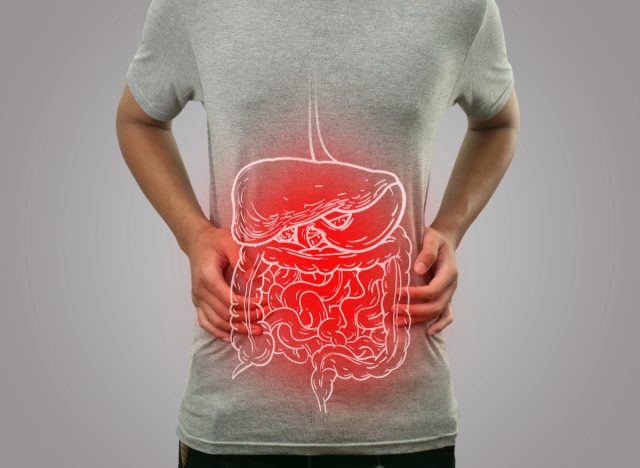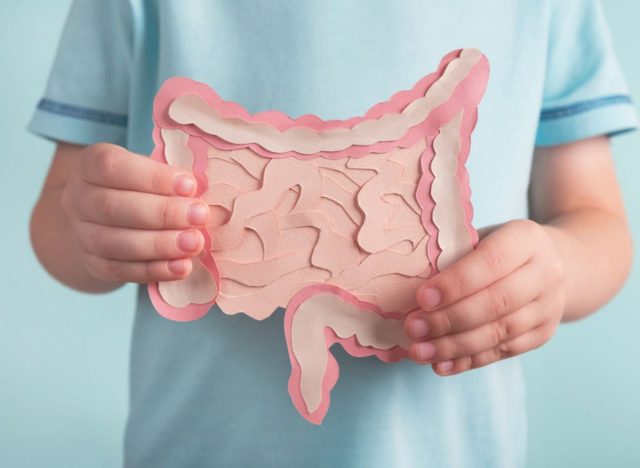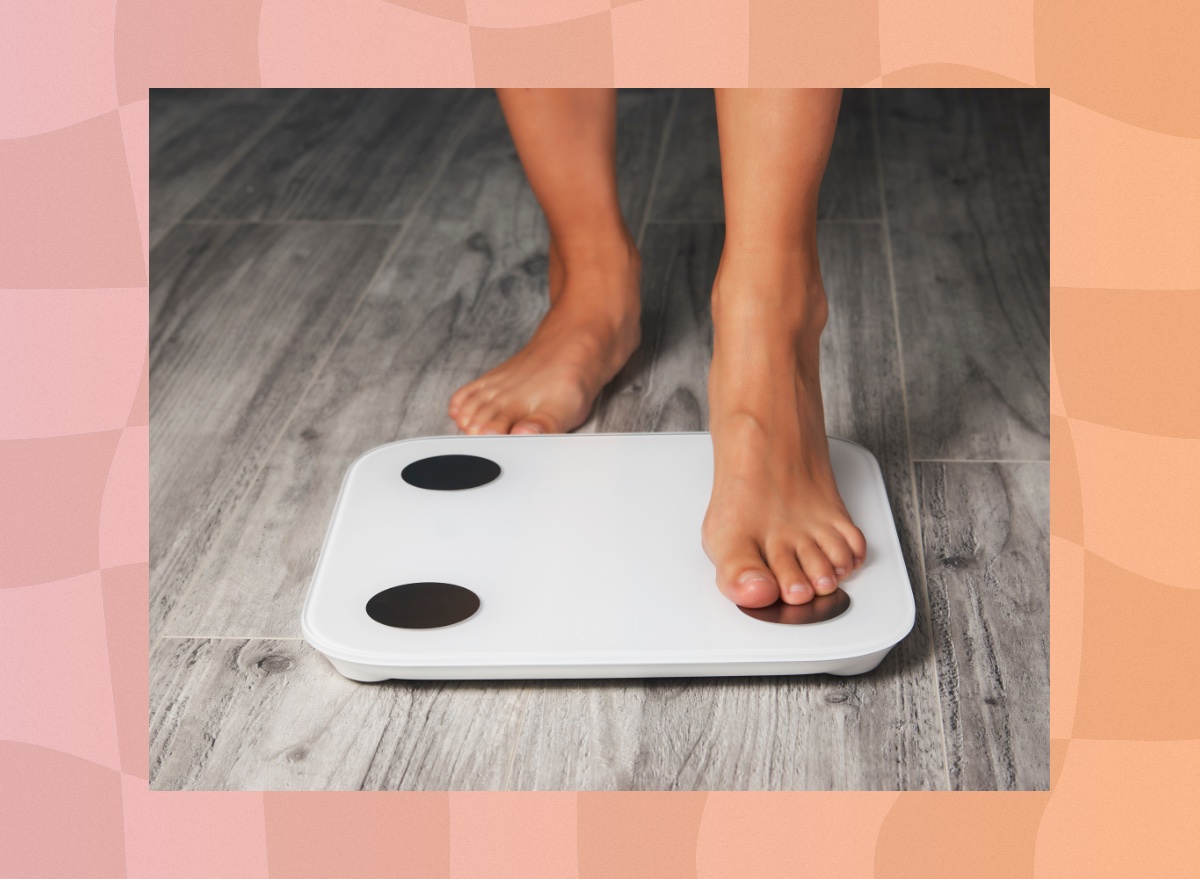In today’s fast-paced world, weight gain is a common concern influenced by many factors like what you eat, how you move, and even your genes and lifestyle. But here’s a sneaky culprit you might not have thought about: hormone disruptors. These troublemakers, lurking in the environment and everyday routines, can mess with your hormones, potentially leading to weight gain and other health woes.
In this article, we’ll uncover 10 of these sneaky “disruptors,” if you will, and share tips to help you keep them in check and bring harmony back to your body.
Chronic inflammation

Chronic inflammation, often caused by a diet high in processed foods, sugars, and unhealthy fats, can mess with your hormones in a few ways.
It can make insulin less effective, leading to higher blood sugar levels and more fat storage. It can also disrupt leptin, the hormone that tells your brain when you’re full, possibly causing overeating. In addition, inflammation can increase cortisol, the stress hormone, boosting appetite and cravings for unhealthy foods. All these hormonal disruptions can contribute to weight gain.
To reduce chronic inflammation, focus on eating a balanced diet rich in fruits, vegetables, whole grains, lean proteins, and healthy fats while limiting processed foods, sugar, and excessive alcohol intake.
Excessive stress

Excessive stress can wreak havoc on your hormones, especially cortisol, which is often called the “stress hormone.” When you’re stressed, your body releases cortisol to help you cope. But when stress is chronic, cortisol levels can stay elevated, disrupting your body’s natural hormone balance. This can lead to issues like weight gain.
Managing stress through activities like meditation, exercise, or spending time in nature can help keep your hormones in check.
Medication

Certain medications, like steroids, for example, can affect your hormone levels, potentially leading to weight gain or other side effects. It’s important to talk to your healthcare provider about any concerns you have regarding medication and its effects on your hormones. They can provide guidance on how to manage these effects and ensure you’re taking the best approach for your health.
Artificial sweeteners

Artificial sweeteners, like those found in diet sodas or sugar-free snacks, might seem like a sweet deal for cutting calories. However, some studies find they can mess with your body’s hormone balance. Your body gets confused when you taste something sweet but with no real sugar. It can trigger your insulin, the hormone that regulates blood sugar, to spike even though there’s no sugar to process. This mixed signal can lead to cravings for more sweet stuff and might even mess with your metabolism over time, potentially leading to weight gain.
Birth control

Birth control, like pills, patches, or rings, contains hormones that regulate your menstrual cycle and prevent pregnancy. These hormones can sometimes disrupt your body’s natural hormone balance, leading to potential side effects like weight gain, mood swings, or changes in appetite.
While birth control is generally safe and effective, it’s important to talk to your healthcare provider about any concerns you have regarding its effects on your body.
High-intensity exercise

High-intensity exercise, while great for fitness, can sometimes disrupt your hormones. When you push yourself too hard, your body can produce more cortisol, a stress hormone. This can throw off your hormonal balance, potentially leading to issues like increased appetite and storing more fat. So, while it’s good to challenge yourself, it’s also important to listen to your body and find a balance that works for you.
Dietary fat imbalance

On the one hand, when you don’t get enough of the right fats, such as omega-3s, it can mess with your body’s ability to regulate hormones related to hunger and metabolism. On the other hand, too much of certain fats, like saturated fats, can lead to inflammation, which, we know from above, also interferes with hormone balance.
Aiming for a balanced intake of healthy fats is important to keep your hormones in harmony. Include a variety of healthy fats from sources like avocados, nuts, seeds, and fatty fish in your meals while minimizing intake of trans fats and limiting saturated fats.
Sleep disruption

When you don’t get enough sleep or your sleep quality is poor, it can mess with your hormones. Two key hormones involved are ghrelin, which tells you when to eat, and leptin, which signals when you’re full. When you’re sleep-deprived, ghrelin levels go up, and leptin levels drop, making you feel hungrier and less satisfied after eating. This imbalance can lead to overeating and weight gain over time. So, getting enough shut-eye is crucial for keeping these hormones in check and maintaining a healthy weight.
Endocrine disrupting chemicals

Endocrine disrupting chemicals (EDCs) are sneaky substances found in everyday items like plastics, pesticides, and even personal care products. They can mimic or interfere with your natural hormones, throwing your delicate hormonal balance out of whack. This disruption can lead to a variety of health issues, including weight gain, reproductive problems, and even certain cancers.
It’s smart to limit exposure to these chemicals by using natural and organic products whenever possible.
Gut microbiota imbalance

Your gut is home to trillions of bacteria that play a crucial role in your health, including hormone regulation. When this community of bacteria is out of balance, it can disrupt your hormonal harmony. An imbalance in gut bacteria can lead to issues like insulin resistance, which can contribute to weight gain.
To keep your gut and hormones happy, focus on eating a balanced diet rich in fiber and fermented foods, and consider taking probiotic supplements to support your gut health.
Keep in mind that everyone’s body reacts differently to these factors, so weight gain isn’t a one-size-fits-all issue. It’s like a recipe where your genes, lifestyle choices, and surroundings all play a part. So, while hormone disruptors can be a piece of the puzzle, they’re just one part of the bigger picture regarding why some people might put on weight.








